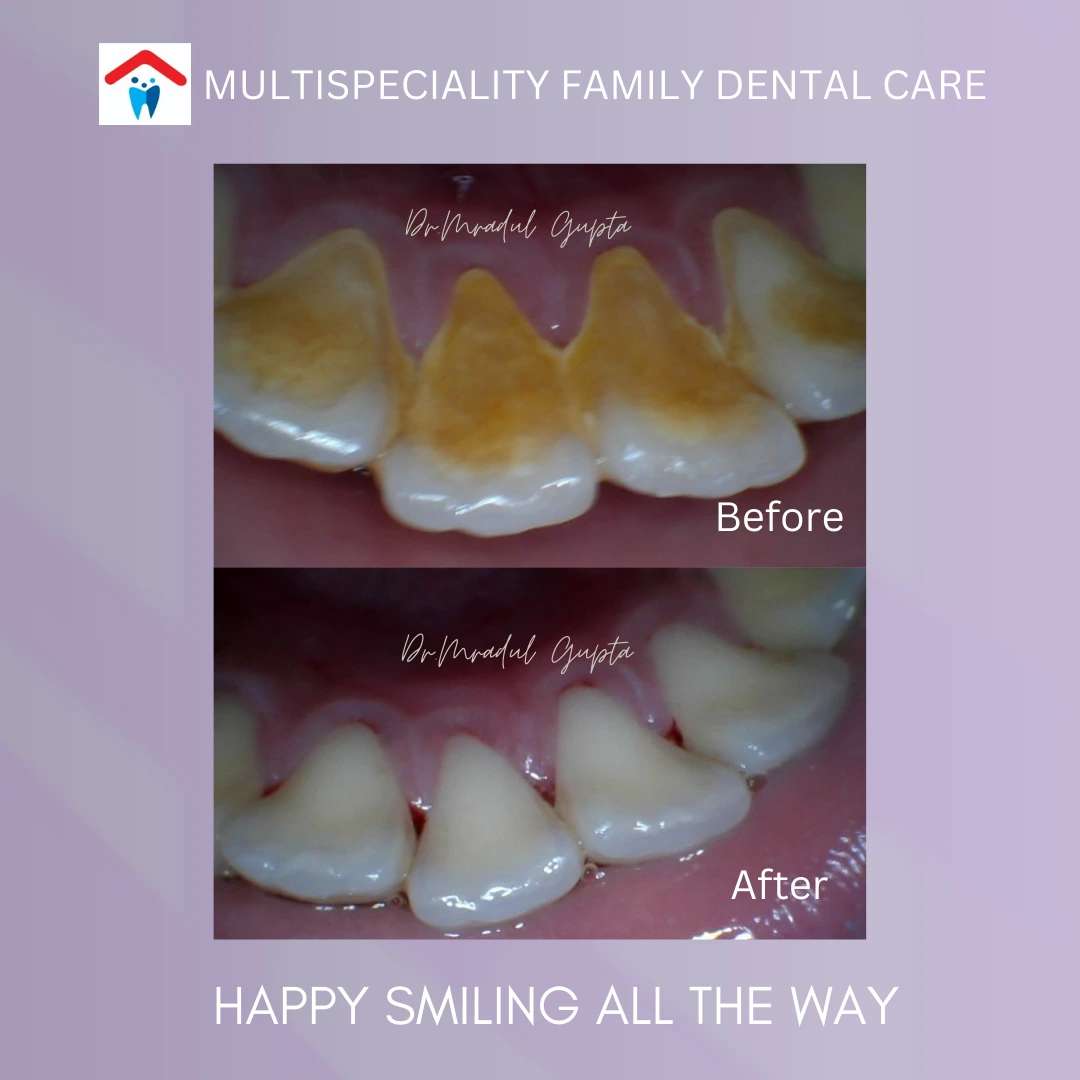- +91-9310531320
mfamilydentcare@gmail.com - 10am to 2pm and 5pm to 8pm
Friday CLOSED
The Importance of Dental Scaling and Polishing: A Comprehensive Guide

We specialize in preventative dental care for our patients in Multispeciality Family Dental Care, Sector 35 Noida. Our highly-trained team of dental professionals is dedicated to providing the best care possible so that you can maintain optimal oral health. We provide comprehensive exams and cleanings and also teach our patients about proper oral hygiene so they can practice it at home. We want to ensure that everyone has the best possible chance of maintaining a healthy smile.
It's important to bring children in for dental appointments from a young age. Not only do baby teeth influence the development of adult teeth, poor oral hygiene can lead to cavities and gum disease. But because children are often less capable of understanding or dealing with discomfort, we recommend gentle dentistry at our practice. Our team looks forward to building rapport with young patients and making their visits fun rather than intimidating. We suggest parental involvement as well; stories about going to the dentist and playtime activities teaching how to brush toy teeth promote healthy habits and make it easier for kids during their check-ups. Coming to the dentist twice a year is beneficial; regular cleanings will help avoid cavities and keep baby teeth in place until they naturally fall out when adult teeth come through.
Dental cleaning and polishing are important procedures for maintaining good oral hygiene and preventing dental problems. Regular cleanings every six months can help keep teeth healthy and looking their best. If you have not had a dental cleaning in a while, it's time to schedule an appointment on 9310531320 with your expert dentist Dr.Mradul Gupta.
Follow us on Social Media to stay updated.


